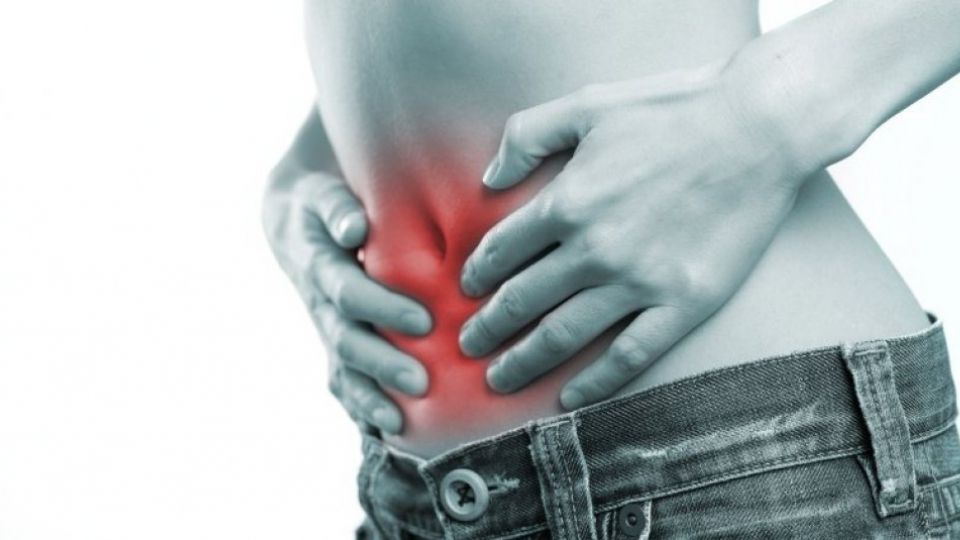
Q
I’ve recently been diagnosed with ulcerative colitis. My doctor wants to start me on drug therapy as soon as possible, but I’d rather try natural treatments first. What do you suggest?
C.S., via email
A
Ulcerative colitis (UC) is a type of inflammatory bowel disease (IBD) that leads to frequent bowel movements and diarrhoea accompanied by blood or mucus.
Other symptoms include weight loss, abdominal cramps, anaemia, fever and fatigue. No one knows for sure what triggers UC, but it appears to be a combination of genetic and environmental factors.
Conventional treatment usually involves drug therapy or surgery. However, both options are risky and not always effective. In fact, 40-60 per cent of IBD patients fail to benefit from the available treatments.1
The good news is that there are a multitude of alternative remedies for you to consider, from lifestyle changes and supplements to herbs and hypnotherapy.
Deal with your deficiencies.
UC is associated with a number of nutritional deficiencies, so work with a qualified health practitioner to identify and correct any that you might have.
You may find that specific symptoms improve as well as your overall health. Supplements that might help include vitamins A, C, E and K as well as beta-carotene, folic acid, calcium, magnesium, selenium and zinc.2
Address allergies
Although doctors continue to rebut any link between food allergies and UC, several studies suggest this should be one of the first things to check.
UC sufferers put on an elimination diet excluding commonly allergenic foods had significantly fewer symptoms (mostly less diarrhoea and rectal bleeding) compared with patients on a normal diet.
Foods likely to trigger symptoms include dairy, pork, tomatoes, spicy foods, citrus fruit, apples, grapes and shellfish.3
Also, avoiding sulphur-containing amino acids (such as eggs, cheese, whole milk, ice cream, mayonnaise, soy milk, wine, mineral water, nuts and cruciferous vegetables) can also ease symptoms and reduce relapse rates.2
Fill up on fibre
Too little fibre increases the risk of UC, so a high-fibre diet might be protective.4 Psyllium husks (4-10 g twice a day) and ‘germinated barley foodstuff’ (10 g twice a day) may be especially helpful.2 During flare-ups, though, you may need to reduce your fibre intake until inflammation subsides.
Cut down on sugar and fatty foods
High intakes of sugar and animal fats are associated with an increased risk for UC,5 so it may be worth limiting the amounts you eat.
Take probiotics
If you don’t already take probiotics-the ‘friendly’ gut bacteria-now is a good time to start. In a high-quality trial of over 100 UC sufferers, therapy with a non-disease-causing strain of Escherichia coli was as effective as low-dose mesalazine (an anti-inflammatory drug commonly used to treat UC) for controlling symptoms and maintaining remission. With both treatments, around 70 per cent of patients became symptom-free for around six months on average.6
A probiotic mixture containing four strains of Lactobacillus, three strains of Bifidobacterium and one species of Streptococcus has also proved beneficial.7
Try EFAs
Fish-oil supplements, rich in omega-3 fatty acids, can reduce inflammation and lower the need for anti-inflammatory drugs. With few exceptions, studies show that these essential fatty acids (EFAs) have beneficial effects in UC patients.
Other nutrients that may be effective include bromelain, quercetin and glutamine.2
Suggested dosages: 1-2 g EPA/DHA three times a day; 0.5-1 g bromelain twice a day; 500 mg quercetin two or three times a day; 1.5-3 g/day glutamine
Consider Boswellia
The gum resin of Boswellia serrata (Indian frankincense) is a traditional Ayurvedic remedy for inflammatory diseases. Clinical trials in patients with UC and other irritable bowel disorders (IBDs) have proved promising.8
In one study, 82 per cent of UC patients treated with the resin (350 mg three times a day for six weeks) achieved remission vs 75 per cent with the drug sulphasalazine.9
Other herbs that might be helpful include Ginkgo biloba, ginger, slippery elm, fenugreek and devil’s claw.10
Opt for aloe
Drinking aloe vera gel-well known for its soothing anti-inflammatory properties-may help ease symptoms. One study found that drinking the gel of this popular plant led to remission or improved symptoms in nearly half of UC patients, while just 14 per cent improved in the placebo group.11
Drink wheat grass
Wheat grass juice is another drink you may want to start taking regularly. After a month of drinking wheat grass juice (starting with 20 mL/day, then increasing by 20 mL every day to a maximum of 100 mL/day), 78 per cent of UC sufferers improved compared with just 30 per cent in the placebo group.12
Try hypnotherapy
A recent UK study had 17 patients with active UC undergo a 50-minute session of ‘gut-focused’ hypnotherapy and compared them with controls who listened to music. Blood levels of interleukin (IL)-6 and IL-13, markers of inflammation in the body, fell by more than half in the hypnosis group, while the music-listeners showed no changes whatsoever.13
|
1 |
J Clin Gastroenterol, 2007; 41: 799-809 |
|
2 |
Altern Med Rev, 2003; 8: 247-83 |
|
3 |
S Afr Med J, 1995; 85: 1176-9 |
|
4 |
Digestion, 1989; 44: 217-21 |
|
5 |
Gut, 1997; 40: 754-60 |
|
6 |
Lancet, 1999; 354: 635-9 |
|
7 |
Drugs, 2006; 66: 1371-87 |
|
8 |
Wien Med Wochenschr, 2002; 152: 373-8 |
|
9 |
Eur J Med Res, 1997; 2: 37-43 |
|
10 |
Carcinogenesis, 2008; 29: 1799-806; J Ethnopharmacol, 2008; 118: 367-72; Aliment Pharmacol Ther, 2002; 16: 197-205 |
|
11 |
Aliment Pharmacol Ther, 2004; 19: 739-47 |
|
12 |
Scand J Gastroenterol, 2002; 37: 444-9 |
|
13 |
Am J Gastroenterol, 2008; 103: 1460-9 |
Send us your most pressing medical questions and we’ll put them to our natural doctor:
letters@wddty.co.uk